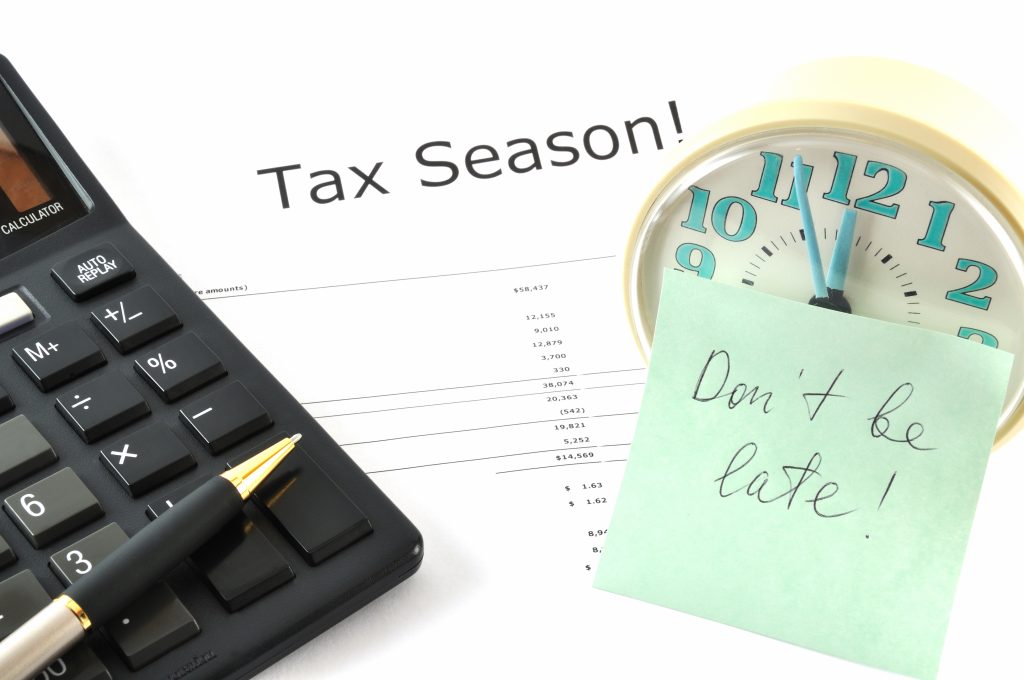The deadline for the 2020 tax year was extended one month, to May 17th, 2021, but some taxpayers still missed the deadline. Perhaps you are one of those people. While many life circumstances can affect a taxpayer’s ability to get things in order on time, a few key steps can help minimize the negative repercussions of late filing.
If your taxes were late this year, you’re currently on an extension, or you’re planning for the year ahead, here are the top five things you should avoid if you’re filing your taxes late.
Procrastinating Past the Deadline
Even if you’ve missed the original deadline, you should file your taxes as soon as possible. Late tax filing fees accumulate the longer you delay filing. Each month you can incur a Failure to File fee of 5% of your unpaid taxes to a maximum of 25%. Additionally, the IRS may apply a Failure to Pay Penalty on the taxes owed on a taxpayer’s return. These two penalties can apply during the same months, which will change the percentages so that instead of paying 5% from the filing penalty, a taxpayer would instead pay 4.5% with an additional 0.5% fine from the Failure to Pay Penalty.
Although the Failure to File and Failure to Pay Penalties maintain a maximum of 25% each, both fines also collect interest, so both fines can grow quickly. Even if you cannot pay the taxes you owe immediately, filing as soon as possible can help keep penalties and interest low. It’s much easier to pay one penalty than it is to pay two.
Forgetting Your Rights As a Taxpayer
To keep penalties and fees low, and to ensure that all of your debts are paid, bear in mind your rights as a U.S. taxpayer. Among the Taxpayer Bill of Rights, the Right to a Fair and Just Tax System helps taxpayers work directly with the IRS to ensure the debt is paid in a timely manner through reasonable means. Some taxpayers qualify for a payment plan with monthly installments, and some may submit an Offer in Compromise detailing why they should pay less than they owe.
The IRS cannot tax all of a taxpayer’s wages because there must always be wages that allow for the taxpayer’s basic cost of living. Additionally, every taxpayer has the right to extend tax paying deadlines, and this can help mitigate any late fees.
Forgetting to Check For Extensions
The 2020 tax deadline changed from April 15, 2021, to May 17, 2021, and this is a great real-world example of occasional extensions the IRS might issue. Other extensions are also available, and a professional can help you file a six-month extension through Form 4868. This can be filed electronically or physically, but both methods require information including name, address, social security number, and total tax liability.
Some taxpayers also qualify for other extensions under specific circumstances. For example, the IRS grants an automatic two-month extension to taxpayers who missed the deadline and are either living outside of the U.S. or enlisted in the military and deployed in a combat zone. These extensions are key to reducing the number of penalties incurred in the late filing.
Paying Your Penalties Without Knowing Your Options
While penalties do increase over time the longer you delay filing and paying, I Don’t jump to pay your taxes immediately if you qualify for first-time penalty abatement or administrative waiver as you might miss opportunities to reduce or even avoid the fines altogether. Late taxpayers can qualify for first-time relief if they paid or have arranged to pay any tax due, have filed an extension on time, weren’t required to previously file a return, or have had no penalties for the prior 3 years.
Working with a tax professional is the best way to assess and manage penalties, especially if you want a fee reduction or even a dismissal. An expert can gather your financial information to strategize a plan for working around the deadline and file as efficiently as possible.
Neglecting Tax Refunds
With a missed deadline and the peril of further penalties and fines, it’s easy to focus on filing and paying your taxes to get the job done. This could be problematic, because you may forget about the importance of tax refunds. While the IRS will hold refunds until past due filings have been fulfilled, you, as the taxpayer, are still responsible for claiming your refund. If you’re hyper-focused on meeting a deadline, you may rush through the process, missing deductions and write-offs that can increase your refund. Sometimes, filing a few days late, but taking the time to go through all potential deductions, will be the smarter financial decision.
Missing a tax deadline is stressful, but you can prevent further errors and penalties by avoiding these common mistakes. Whether you’re planning for the next tax deadline or need immediate assistance, AG FinTax is here to help—contact a professional now.




